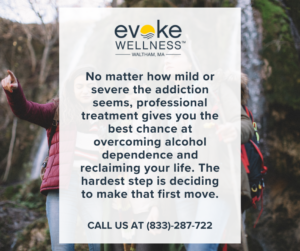You’ve finally decided it’s time. You’re ready to take control of your drinking and get the help you need. The options can feel overwhelming. Inpatient, outpatient, 12-step, non 12-step – it’s a lot to take in. But don’t worry. With a bit of research and self-reflection, you can find a program that fits your needs and sets you up for success.
In this article, we’ll walk through the key factors to consider as you search for the alcohol addiction treatment program that’s right for you. We’ll talk about treatment settings, methods, costs, and more. You’ve taken the hardest first step – deciding it’s time for change. Now let us guide you through the next one – finding the help you deserve.
How to Find the Right Alcohol Addiction Treatment Program
Know Your Options
Choosing an alcohol addiction treatment program is a big decision. There are many types available – inpatient, outpatient, support groups, and more. Do your research to understand what each one offers.
Get An Assessment
Before committing, it’s wise to get a professional assessment. This helps determine the level of care you need based on factors like severity of addiction, mental health, and medical history. The assessment ensures you get the most appropriate and effective treatment.
Consider Your Lifestyle
Think about your daily routine, work schedule, family obligations, etc. An outpatient program with counseling sessions a few times per week may work best if you need flexibility. But if you need intensive treatment away from triggers, an inpatient program could be ideal.
The right fit makes all the difference in your recovery journey. Take the time to carefully evaluate your needs and options. Support from professionals can guide you in making this vital choice.
Exploring Your Treatment Options
Treatment Terminology
Treatment settings refer to the level of care you need. The two most common options are inpatient (residential) and outpatient treatment. Inpatient treatment provides 24-hour care and monitoring in a controlled environment. Outpatient treatment allows you to live at home while attending counseling and therapy sessions. Think about your needs and daily responsibilities to determine what level of care will set you up for success.
Treatment methods range from 12-step programs to non 12-step programs. 12-step programs follow the model of Alcoholics Anonymous, focusing on group support and spiritual growth. Non 12-step programs offer alternative methods like cognitive behavioral therapy, motivational interviewing, and holistic therapies. Consider which approach aligns with your beliefs and needs.
Inpatient vs Outpatient
There are two main paths for alcohol addiction treatment – inpatient and outpatient programs. Inpatient or residential treatment involves living at the facility full-time, with 24/7 support and intensive therapy. This allows you to fully focus on recovery without outside influences.
Outpatient programs allow you to live at home while attending regular counseling sessions and support meetings. This provides more flexibility but also more exposure to temptation.
Medications & Therapy
The most effective alcohol treatment programs combine different approaches – medications to help reduce cravings and withdrawal symptoms, behavioral therapies to develop coping mechanisms, counseling to address root causes, and support groups for motivation.
Some common medications include disulfiram, naltrexone, and acamprosate. Cognitive-behavioral therapy (CBT) is a leading counseling technique.
Specialized Programs
There are also specialized treatment tracks for certain groups – gender-specific, faith-based, LGBTQ+, dual diagnosis for co-occurring mental health issues, and more. Choosing a program tailored to your specific needs and background can improve outcomes.
The most successful treatment is individualized to your situation. Explore all your options to find the right fit.
The Role of Therapy in Treatment
Counseling & Support Groups
Therapy plays a vital role in alcohol addiction recovery. Besides medication, counseling helps you understand your addiction triggers and develop healthier coping strategies. Support groups connect you with others battling similar issues – providing a safe space to share experiences.
Individual & Family Therapy
Individual therapy allows you to work one-on-one with a counselor to address personal issues fueling the addiction. Family therapy brings loved ones into the process, rebuilding trust and strengthening your support system.
Cognitive-Behavioral Therapy
One effective approach is cognitive-behavioral therapy (CBT). It helps identify negative thought patterns and behaviors related to drinking. You’ll learn to replace these with positive coping skills for managing cravings and stress. CBT equips you with tools for lasting sobriety.
Knowing When It’s Time for Treatment
The Warning Signs
As alcohol addiction progresses, certain red flags become impossible to ignore. You may start canceling social plans to drink alone. Blackouts and memory lapses become more frequent. Hiding alcohol or lying about how much you drink is also a telltale sign.
Impact on Daily Life
When alcohol consumption begins to interfere with work, relationships or other responsibilities, it’s a major wake-up call. You might miss important deadlines, arrive late, or perform poorly on the job. Substance abuse can also cause conflicts, emotional outbursts and strained ties with loved ones.
Health Consequences
Alcohol is a depressant that takes a harsh toll, physically and mentally. Signs include frequent hangovers, insomnia, shakiness, and mood swings. Long-term effects may involve liver disease, heart problems, depression, or a weakened immune system. If you’re experiencing health issues tied to drinking, it’s time to get help.
Making Treatment an Ongoing Process
Recovery Is a Journey
Getting sober is just the first step. Addiction recovery is an ongoing process that requires commitment and effort. It’s not a one-and-done deal. You’ll need to actively work on your sobriety each day.
Build a Support System
Having a strong support network is crucial. Lean on trusted friends, family, a therapist or a peer support group. They can provide encouragement, accountability and advice when times get tough. You don’t have to go it alone.
Develop Healthy Habits
Replace unhealthy coping mechanisms with positive activities that reduce stress and boost your mood naturally. Exercise, meditation, journaling, volunteering – find what works for you. Building new routines keeps your mind and body occupied.
Manage Triggers and Cravings
Certain people, places or situations may trigger cravings. Have a plan to avoid or manage these triggers. Quickly remove yourself from tempting environments. Distract yourself with a hobby or call your sponsor when urges strike.
Embrace Lifelong Learning
Recovery is a process of continual growth. Read books and articles on addiction. Attend counseling, workshops or support meetings. Keep learning about yourself and healthy ways to manage thoughts and behaviors. Progress takes patience and persistence.
Explore Alcohol Treatment with Evoke Wellness at Waltham
If you or a loved one is considering outpatient treatment, Evoke Wellness at Waltham invites you to contact us. Our compassionate team is ready to answer your questions, discuss your needs, and help you take the first steps toward recovery. At Evoke Wellness, you will find more than just a treatment program – you’ll discover a community dedicated to your wellness and success. Together, let’s embrace the journey to recovery and the promise of a new beginning. Call us at (833)-287-7223 today or reach out online.



